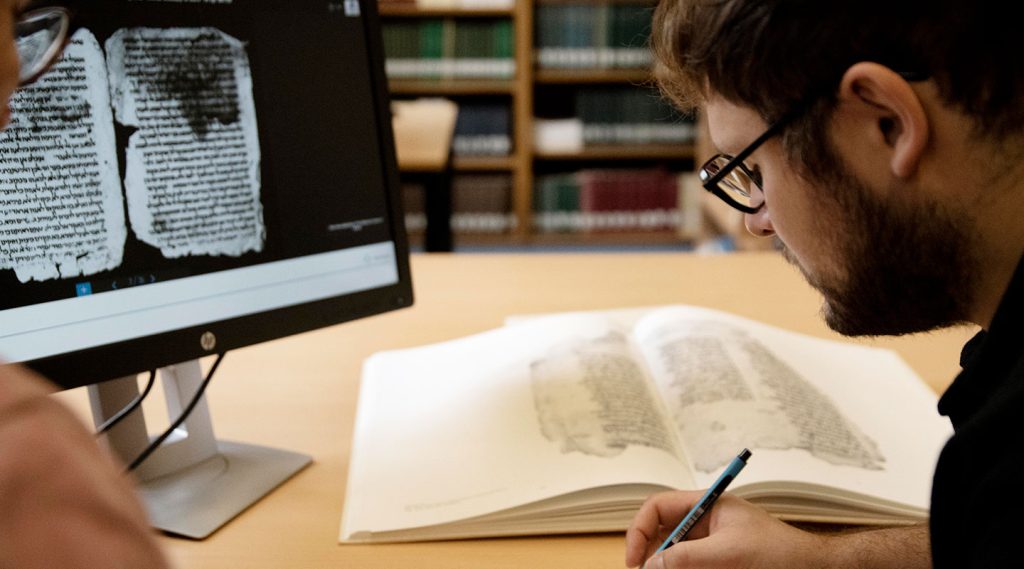Jewish Book Culture in the Islamicate World
Principal Investigator:
Judith Olszowy-Schlanger (University of Oxford) and Ronny Vollandt (Ludwig-Maximilians-Universität, Munich)
Funded by:
German Research Foundation and Arts and Humanities Research Council
Timeframe:
2020–2023

The medieval Islamicate world encompassed the world’s most bookish societies. Hand-copied books were produced in unprecedented numbers, new book materials and techniques emerged, calligraphy and collecting became marks of intellectual refinement not only among Muslims, but also among religious minorities. The Jews, for whom books and the Book, the Bible, had been central in religious and intellectual life for centuries, partook fully in the bookish revolution by adopting new book forms, literary genres, and modes of production and diffusion, and new attitudes to books and readership.
This project explores these transformations and investigates to what extent Muslim book production affected the book culture of the Jews, making it depart drastically from Antique and Late Antique models. It analyses the impact both on the materiality and aesthetics of Jewish books, as well as on connected intellectual and social aspects, such as the spread of literacy, changing modes of interaction between oral and written transmission, the growth of professional book production and its economic basis, and the foundation of Jewish libraries and institutions of learning.
The project undertakes for the first time a comprehensive and multifaceted study of Jewish books in the Islamicate world. It draws on a large corpus of carefully selected dated and datable manuscripts produced in Egypt and the Near East, mostly in the Fatimid and Ayyubid periods: codices, scrolls, and rotuli kept in major world libraries, as well as fragments from the Cairo Genizah and the Firkovitch Collections of the National Library of Russia in St Petersburg. The project examines these manuscripts in terms of their making (their structure, materials, scripts, and handwriting); their context of production; and their reception (the practices of reading and the impact of the books’ materiality on the transmission of knowledge).
A large corpus of manuscripts, processed by the project members and collaborators, will be collected to extract all relevant information and make it available in two databases built for that purpose: the Jewish Book Culture database and the Hebrew Palaeography Digital Album. Furthermore, the Jewish Book Culture website (https://www.jewishbookculture.com/) offers access to the project’s collective monograph, the Handbook of Jewish Book Culture in the Islamicate World, a glossary that describes every feature of the research, benefiting from its results.
Other contributors

